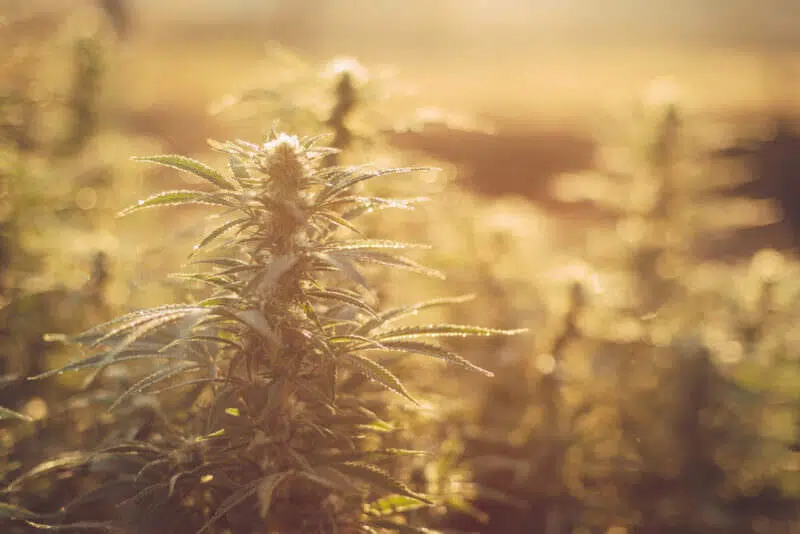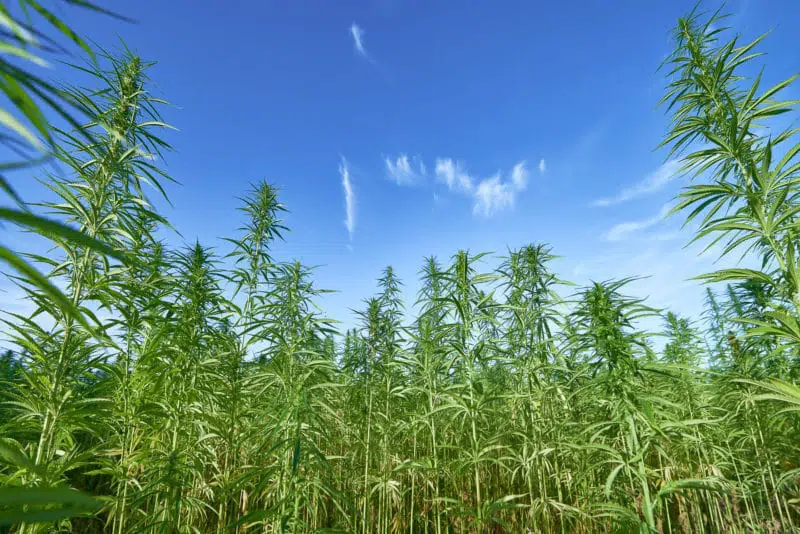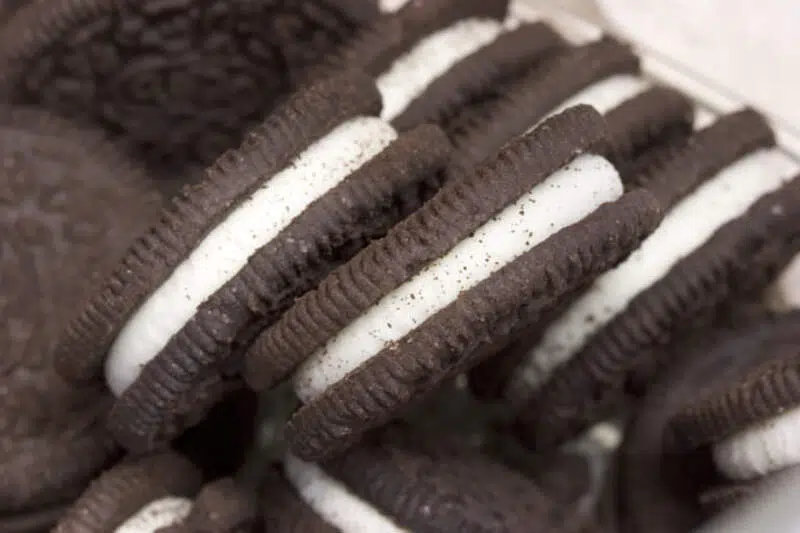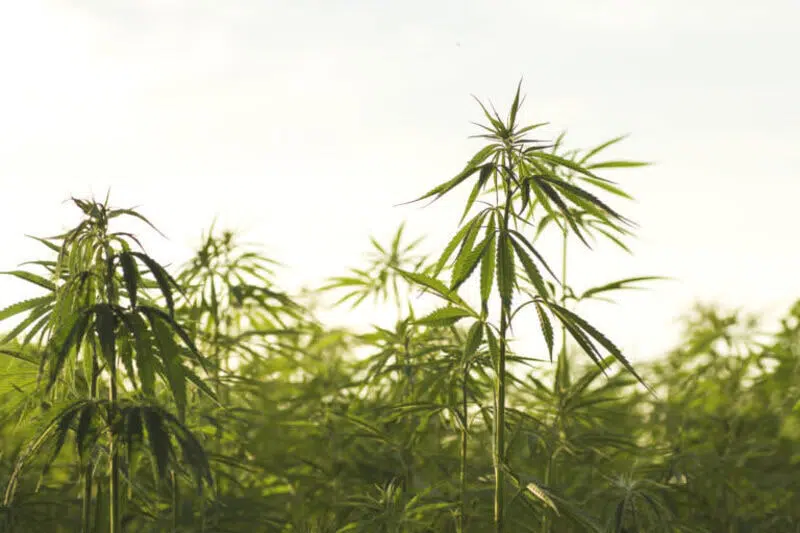-
- Market Research
- |
- CBD Near Me
- |
- Giveaways
- |
- Newsletter
- |
- Contact
- |
- Advertise
- |

Table of Contents
Here is the latest CBD news from this week:
- Elixinol, the fifth largest CBD company in the US, has received the US Hemp Authority certification seal
- A Quartz and Harris Poll revealed Americans primarily use CBD to relieve anxiety
- Hemp programs are progressing in Oklahoma and Iowa
- The Vitamin Shoppe started selling CBD softgels, deviating from retailers like CVS and Walgreens
Table of Contents
- Elixinol Awarded US Hemp Authority Certification Seal
- Survey Finds Americans Turning to CBD for Anxiety Relief
- Hemp Making Progress in Oklahoma and Iowa
- The Vitamin Shoppe Selling CBD Softgels
Elixinol Awarded US Hemp Authority Certification Seal
On Monday, Elixinol announced it had received the US Hemp Authority certification seal.
Accounting for more than 4% of the entire CBD market in 2018, ranking fifth, Elixinol is at the forefront of the CBD industry.
Elixinol joins 13 other CBD companies and producers such as CV Sciences and CBDistillery, who received the seal at the beginning of last month.
The company can now use the seal on all of its packaging and marketing materials.
To receive the seal, Elixinol had to meet the Authority’s stringent standards and pass a rigorous third-party audit.
“Elixinol takes pride in the level of care and detail that goes into ensuring the quality and safety of every single product we put our name on,” said Amberley Calvo, General Manager at Elixinol, in a statement. “All of our products are double-tested by third-party laboratories for purity and potency, and now they’ll also come with the highly coveted U.S. Hemp Authority stamp of approval.”
The US Hemp Authority is a self-regulation organization that was formed in 2018 by the US Hemp Roundtable, a coalition of CBD and hemp companies that advocate for hemp policy.
To develop its certification program, the Authority sought advice and comments from over 20,000 industry leaders.
The program’s purpose is to educate producers about best practices and help consumers recognize reliable companies.
Survey Finds Americans Turning to CBD for Anxiety Relief
A survey conducted by Quartz and the Harris Poll found that Americans are primarily using CBD to relieve their anxiety and stress.
The most prominent uses of CBD were for relaxation (55%), anxiety/stress relief (50%), improving sleep (45%), and relieving pain (~ 40%).
The poll surveyed more than 2,000 American adults about their use of CBD.
Of those surveyed, 86% had heard of CBD, but only 18% had used it, and 7% used it regularly.
Who Uses CBD?
The poll found over 10% of regular CBD users are 18-44 years old, more than double those 45 and older.
A survey Quartz published late last year revealed Millenials and Gen Z employees are nearly twice as likely to experience work-disrupting anxiety, which may explain why CBD is more popular with the younger crowd.
Men are more likely to use CBD, and use it regularly, than women. About 21% of men have used CBD compared to 16% of women, and 10% of men said they use it regularly while just 4% of women said the same.
CBD is most popular in the western US, as more than one-fourth of residents say they’ve tried CBD. Less than 20% of adults have tried CBD in the other three regions.
The most prominent CBD brands are primarily based in Colorado and California, which probably accounts for the discrepancy.
Majority of Americans Approve of CBD
Over 80% of those who have heard of CBD support its use, and 56% believe CBD can replace painkillers.
There is evidence that supports CBD’s ability to replace medication.
According to a survey by Consumer Reports, 22% of people who used CBD said it helped them replace a prescription or OTC drug.
However, two-thirds of respondents were concerned about at least one potential issue with CBD.
The most popular concerns were CBD’s unknown side effects and CBD’s combined effects with prescription drugs.
While little is known about the possible interactions it may have with prescription drugs, CBD has a favorable safety profile that is confirmed by various researchers.
Hemp Making Progress in Oklahoma and Iowa
Hemp bills progressed in the legislatures of Oklahoma and Iowa this week, with Oklahoma making its bill law on Friday.
Oklahoma
The Oklahoma bill signed into law by Governor Kevin Stitt allows the state Department of Agriculture to create a hemp production program under the provisions of the 2018 Farm Bill.
Oklahoma’s current hemp program only permits hemp for research purposes by universities and colleges.
According to Sen. Lonnie Paxton (R-Tuttle), the regulations will mirror the USDA’s pending regulations, which will help expedite the program.
“There will be no more lag time. We will be responding as quickly as the federal government will allow. This sets everything up so that everything will be in place for local farmers to have everything ready to go,” said Paxton to the Oklahoman.
The new law could also attract business to Oklahoma.
“The other part is, it presents a great opportunity for processors to move in the state,” said Paxton.
Iowa
In Iowa, a bill to legalize hemp production in the state passed the Senate by a vote of 49-1.
The bill now moves on to the House.
According to state Sen. Tom Shipley, amendments were made that are expected to help the bill pass in the House.
Currently, the bill would allow hemp production to begin in 2020, but farmers can only grow 40 acres of hemp.
If the bill passes, only five states in America would not have a hemp production program.
The Vitamin Shoppe Selling CBD Softgels
The Vitamin Shoppe has become the latest major chain to start selling CBD products, specifically CBD softgels.
The full-spectrum hemp extract softgels from Irwin Naturals are being sold in 14 states across the country, Washington D.C., and Puerto Rico.
Later in April, Vitamin Shoppe will add Garden of Life CBD softgels and liquid drops.
In an email to High Times, Vitamin Shoppe CEO Sharon Leite said customer feedback inspired the decision to sell CBD.
“The customer relationship is the cornerstone of The Vitamin Shoppe’s reinvention, and our customers have told us loud and clear they want CBD,” Leite said.
By selling oral CBD products, Vitamin Shoppe has deviated from the conservative precedent set by CVS, Walgreens, and Rite Aid who are only selling CBD topicals.
“Our goal at The Vitamin Shoppe is to be first to market with innovative, high-quality products, as well as provide our customers the education, guidance, and services essential to helping them live their best life, however they define it,” said Leite. “These new product offerings are another example towards us fulfilling that promise.”
The FDA has stated that adding CBD to food or drink is illegal, which includes softgels and drops.
The agency is working on a regulatory pathway for CBD-infused foods, but former FDA Commissioner Scott Gottlieb said the process could take years.
However, Gottlieb mentioned Congress could pass CBD-specific legislation rather than wait on the FDA.
Regardless of which path the federal government takes, the FDA has made its stance on CBD clear for the moment, and it has taken action against companies selling CBD in the past.







